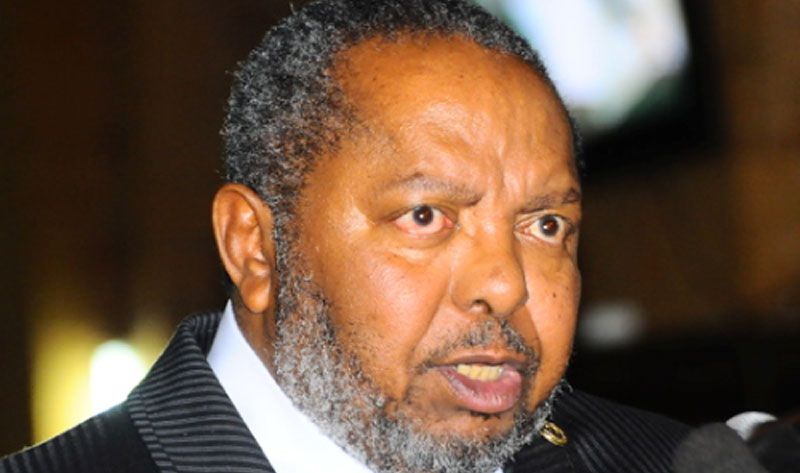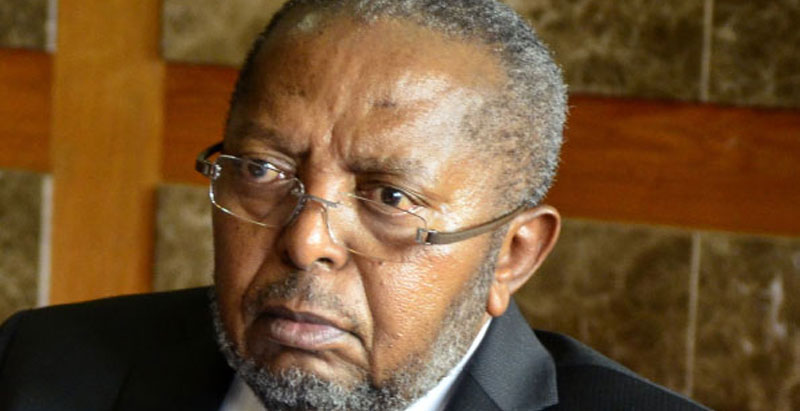

BoU governor Prof. Emmanuel Tumusiime Mutebile
Government must develop an industrial policy, and increase development financing!
Ugandans are concerned with what is happening with their financial and economic well being today. Prices of nearly everything have increased yet people’s incomes are dwindling since the shilling has lost a lot of value. The cost of living has gone up at a time when access to money is quite limited.
Many people are broke but the prices are rising. This cannot be inflation. This is something else. Inflation occurs when there is too much money chasing a few commodities. A sophisticated observer will find that in our case, there is too little money chasing loads of highly priced commodities.
Gardens and markets are full of food since we had a bumper harvest last season, yet food prices are rising rapidly. Food is rotting in people’s gardens in western and parts of central Uganda, yet people are dying of hunger in Karamoja. Food prices are very high in Kampala markets, yet farmers receive peanuts from the middlemen who pick their produce.
Banks offer savers zero rate of interest, yet borrowers are charged very high lending rate, now averaging 27% per annum. So it’s quite easy for banks to make clean money in Uganda. Just ask people to open up a “savings” account with your bank. Put a monthly service fee of Shs.2,500 to run the account.
Give the savers an ATM debit card, and charge them Shs.600 per withdraw transaction they make. The unsuspecting and financially illiterate “saver” deposits her hard-earned Shs.1 million in her savings account. Every year she pays Shs.30,000 to the bank as monthly charge, and if she visits the bank 20 times to withdraw, she loses Shs.12,000.
In the mean time, inflation is currently “walking” at 7.2% per annum, which means that the poor saver is losing Shs.72,000 per year. Projections at Bank of Uganda indicate that the inflation rate might rise into double digits in the next couple of months. This would mean that the saver is actually dissaving. Of her Shs.1 million savings, she would lose at least Shs.144,000 (the monthly bank charges + withdraw charges + inflationary loss).
Wedding loans?
In the meantime, if a relative of the “saver” goes to the bank to borrow her sister’s Shs.1 million savings, the bank would charge her a lending rate as high as 27% per year, or an equivalent of Shs.270,000 plus the other costs banks in Uganda charge (insurance, loan arrangement fees etc). This would mean that as a family they’ve lost a total of at least Shs.414,000 (loss by the saver + interest paid by the borrowing relative).
This is the very reason Ugandans do not want to save their money in banks. They may not be financially literate, in the strict sense of it, but they use experience and commonsense to realise that banks are giving them a raw deal. They thus decide to buy assets that possess high resale value such as land, cattle, etc instead of keeping their money in banks.
As a result of this, there is a savings crisis in the country. Banks do not have enough credit to lend and they resort to borrowing from the central bank and from their mother banks abroad. This makes credit expensive and thus lead to persistence of high interest rate spreads in the country.
Those who swallow the pin to borrow from the banks, end up losing their property they stake as collateral. Why? First of all the loans are very expensive. Although banks cite factors such as the high transaction costs they incur in Uganda and that Ugandans are risky to lend to, the truth is that the banks are partly to blame because of their exploitative pricing methodology.
Ugandan banks structure their loans in such a way that the borrowers fail to pay and they confiscate their usually more valuable collaterals. This is what economists refer to as predatory lending.
Banks in Uganda are seizing people’s properties at a scary rate. Interestingly authorities that are supposed to protect the borrowers are blaming the latter. They claim that it is the borrowers’ mistake because they fail to bargain with banks for better terms, and that they are not frugal enough with the loans.
The banks themselves engage in very risky portfolios, designing loans as ridiculous as wedding loan. When you lend someone Shs.20 million as wedding loan, what do you expect? Is wedding a lucrative business where someone can earn and repay the loan? In this case, what is the collateral? The bride?
Free-for-all markets
Mr. President, I have written about some of these realities of our time before. Your government over liberalised the economy. True, free markets are encouraged all over the world as the best system of managing the economy.
However, ours are not free markets; they are free-for-all markets. Your government, for example, over liberalised the public services which compromised quality and legalised “cheating”. It over liberalised the goods markets which distorted the markets and prices. A farmer in Kayunga (1 hour from Kampala) receives Shs.500 for a his water melon, yet consumers of the melon are charged Shs.8,000 for the fruit! Why?
Your government, Mr. President, has neglected the environment. It is in Uganda where, in the name of liberalisation, even the environment was left to the mercy of free markets. People are free to determine whether they should destroy the forests or they should spare them. It is not uncommon to find a signpost for National Forestry Authority (NFA) standing in front of stumps of trees that have been erased by loggers and charcoal burners.
It is also up to the citizens to decide whether they should build in wetland or they should spare them. People have built and/or cultivated on mountain slopes. Consequently, the weather conditions are changing swiftly as we rush to New York to chair meetings that are discussing climate change!
We even liberalised fertility rates and as a result all our efforts are being negated by rapid population explosion. The fertility rate for Uganda is 6 children per woman. That’s the average. There are many who produce as many as 10 children. Most of these are poverty candidates. To stop this we need to think of incentives that would reduce fertility. Education for girls and woman, as well as decent employment for them so that they can raise their incomes would do the magic.
Building a rich economy with poor people
You cannot develop and sustain an economy that is structured like that of Uganda. The emerging opportunities are not being distributed well, the growth is largely jobless, the shift in labour from the slow growing to the fast growing sectors is very slow, labour mobility has been thwarted by a very low level of education and general capability development.
There’s absence of growth in two critical areas: in agriculture, and secondly, in both social and physical infrastructure. Both history and economic theory tell us that the broad policy of relying on the market to develop these sectors is not practical. Europe, America, and now Asia used government to develop agriculture, education, health, and infrastructure. We also know from theory that the market under-provides such goods.
Mr. President, we need to rethink the current economic model. We need a “developmental state” — government must provide incentives for import substitution and also on its own invest in some strategic industries. We need to develop an industrial policy to redirect this economy. We need more development financing instead of these chaotic banks that are financing consumption.
In conclusion, although the economy has undergone fundamental reform in the last three decades, we now need to move from reform to growth facilitation. Growth is slowing down and most dangerously it is going to the few who already have a lot.
We need to start producing a bigger proportion of the goods and services that we consume to make the economy work for us. We need to put the “Made in Uganda” label in our supermarkets and homes. To achieve all these, we need to rethink this chaotic free-for-all market model that is busy building a rich economy with poor people.














Sunrise reporter
Leave a Comment
Your email address will not be published.